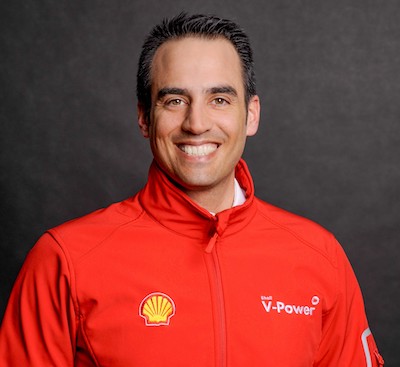“Robert College always provides a vision ahead of the times.”
COVER STORY: ENVIRONMENTAL SUSTAINABILITY
Emre Turanlı has been working at Shell in various leadership roles and countries since 2003. As of June 2020, he is the CEO of Shell&Turcas.

Emre Turanlı RC 97
How is Shell involved in environmental sustainability? What are your plans going forward?
The world is going through an intense energy transformation, and the key issue at this point is to dramatically reduce carbon emissions worldwide for a better future. Shell supports the most ambitious goal of the Paris Agreement on climate change to limit the global temperature rise to 1.5° Celsius. Shell’s target is to become a net-zero emissions energy business by 2050.
Becoming a net-zero emissions energy business means that we are reducing emissions from our operations, and from the fuels and other energy products we sell to our customers. It also means capturing and storing any remaining emissions using technology or balancing them with offsets. We are transforming our business to meet our target, providing more low-carbon energy such as charging for electric vehicles, hydrogen and electricity generated by solar and wind power. We are also working with our customers as they make changes too, including in sectors that are difficult to decarbonize such as aviation, shipping, road freight and industry.
What is Shell’s approach to renewable energy? Are you taking steps to diversify away from fossil fuels?
We are an energy provider and a key partner of our stakeholders for change. In Great Britain, we provide hundreds of thousands of homes with 100% certified renewable electricity. We are meeting the growing needs of electric vehicle drivers – offering drivers access to more than 185,000 public electric vehicle charging facilities in more than 35 countries and plan to increase the number of charge points to around 500,000 by 2025. We also acquired the company named ubitricity, a European provider of on-street charging for electric vehicles.
Additionally, we are exploring ways to produce hydrogen using offshore wind power. Solar is key in our portfolio. Our first solar project in the Middle East is helping to power a smelting company in Oman and cutting its carbon emissions in the process. We are also testing 100% sustainable aviation fuel.
In Turkey, we have solar-powered sites which will increase. We opened Turkey's first liquefied natural gas (LNG) filling station. Currently, we have 3 EV charging facilities on the Istanbul - Ankara and Istanbul - Izmir highways and continue investment in this area.
What is Shell doing to protect the environment in Turkey?
In Turkey, we have our first Shell Turkey Forest with 3,100 trees. With this forest, we aim to neutralize approximately 105 tons of carbon dioxide, equal to the amount emitted from more than 1,300 cars every year.
Shell is a founding member of the Alliance to End Plastic Waste and we manage our waste with an approach to "consume less, reuse and recycle". For instance; Our Derince Lubricant and Grease Production Facility, exporting to 65 countries, established the Zero Waste Management System and received the Zero Waste Certificate.
How did RC influence you? How should education change in term of environmental issues?
Robert College always provides a vision ahead of the times. My years in RC have a massive impact on my personality. I think there should definitely be lectures around environment at school. However, this boils down to leadership more than environment knowledge. Most Turkish people think that they should have the convenience of energy usage at its extreme but expect someone else to save the world. Unfortunately it does not work that way, and at the end it is governments and societies who can make a big change.
Published August 2021




